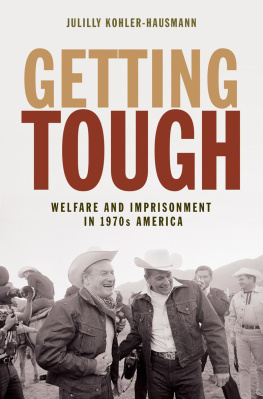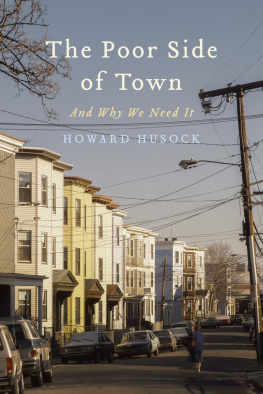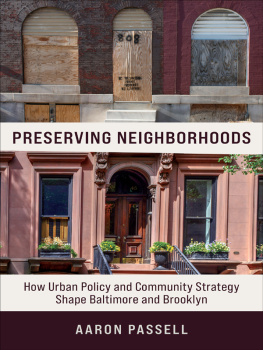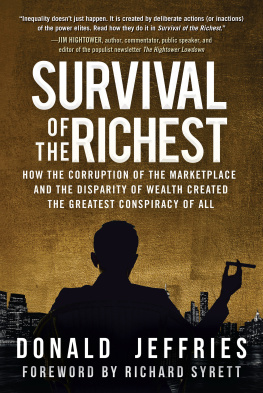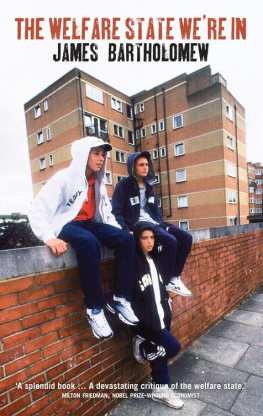Copyright 2015 by Princeton University Press
Published by Princeton University Press, 41 William Street, Princeton, New Jersey 08540
In the United Kingdom: Princeton University Press, 6 Oxford Street, Woodstock, Oxfordshire OX20 1TR
Cover illustration by Ben Wiseman. Cover design by Isometric Studio.
press.princeton.edu
All Rights Reserved
Second printing, and first paperback printing with a new preface by the author, 2016
Library of Congress Control Number: 2014951729
Cloth ISBN 978-0-691-16284-3
Paper ISBN 978-0-691-17305-4
British Library Cataloging-in-Publication Data is available
This book has been composed in Minion Pro, Rockwell Std, and OSP-Din
Printed on acid-free paper.
Printed in the United States of America
10 9 8 7 6 5 4 3 2
Weve only to follow the thread of the hero path and where we had thought to find an abomination, we shall find a god; and where we had thought to slay another, we shall slay ourselves; where we had thought to travel outward, we shall come to the standard of our own existence, and where we had thought to be alone, we shall be with all the world.
J OSEPH C AMPBELL
The Hero with a Thousand Faces
Preface to the Paperback Edition
One year ago, only two months after this book was first published, the nation was riveted by new developments in West Baltimore. The needless, still incomprehensible death of Freddie Gray, a twenty-five-year-old resident of Sandtown-Winchester, offered yet another illustration of the extent to which impoverished people in Americas inner cities endure harsh surveillance, containment, and punishment. That event was the latest in a string of deaths involving unarmed black men. Together they form a pattern in demand of analysis and political response. The Black Lives Matter movement may be seen as the outraged effect of those concerns.
Like many young men in destitute neighborhoods, Freddie Gray lived and died in line with a familiar storythe son of a drug-addicted mother, he was affected by lead poisoning in childhood and subsequently diagnosed with learning deficiencies in schools where teachers and counselors are overworked and underpaid. As a teenager, in the absence of meaningful employment opportunities, he gravitated towards drug commerce, the main source of revenue for kids like him. He was a small dealer without a violent record in an unforgiving setting where people like him can be detained simply for looking suspicious. After being arrested, he was handcuffed and thrown, without safety restraints, into the back of a vehicle. By the time he arrived in the police station, his spine had been nearly severed, allegedly, as a result of a bumpy ride. He died seven days later, one more casualty in the American States long assault on the urban poor.
In the wake of Grays death, reactions divided along known ideological demarcations. Conservatives lamented the ensuing civil disturbances, portraying them as riots caused by the disorderly desires of looters, a good way to perpetuate stereotypes about African Americans living in poverty. More liberal channels focused on police brutality, a term that encodes anxieties about the misuse of power on the part of public servants mandated to protect local communities. Lost in the ideological cacophony was the institutional context that makes the death of impoverished black men like Freddie Gray possible and nearly inevitable; a context formed by a multitude of liminal government institutions in a relationship of distorted engagement vis--vis the urban poor. Mainstream government agencies relate with most people as citizens and consumers. By contrast, these liminal government institutionswelfare offices, correctional facilities, public schools, and other such entitiesinteract with indigent clients as burdens on the society, perennial outsiders, and sources of pollution. An exclusive focus on police brutality makes it appear as if the main problem confronted by inner-city residents were abusive cops. In this book, I contend that more is at playinstitutional guidelines and practices that limit the choices of vulnerable residents but also those of government employees.
Most police officers grow up in working-class environments; they choose their profession aiming to serve the public. Surely, they must be held accountable for their personal choicesincluding the perpetration of arbitrary violencebut those choices are not made in a vacuum. For more than three decades, police have been asked to behave like combatants in an occupied territory; they are seen by many local residents as intruders. Their training seldom includes specifications on how to engage with individuals and families as neighbors, not criminals. The model of community policing that once served as the stock of vintage American art and literature has virtually disappeared. In its stead is a profusion of militarized agencies, which often treat residents as enemies and potential sources of revenueBaltimore, Maryland, and Ferguson, Missouri, are but two cases revealing the much larger and ominous landscape of government omnipresence.
What remains absent in narratives about police brutality is a deeper understanding of the forces that shape American destitution. A main purpose of this book is to redress that omission. In addition to the criminal justice system, a panoply of liberally inspired government agencies aimed at helping the poor have become forces that contribute to the perpetuation of poverty. Public schools, dispensers of public assistance, and rehabilitative programs of various kinds operate under contradictory conditions; on the one hand, their expressed mission is to provide a safety net for vulnerable individuals and families. In that respect, they are in correspondence with traditions of public responsibility towards people labeled as underserved, less fortunate, or underprivileged. On the other hand, the internal policies and practices of those agencies are shaped by suspicion and conditionality. Underfunded and thinly staffed, offices charged with services for the poorpublic assistance, child protection, juvenile corrections and counseling, even rehabilitationoften require special forms of certification (urine specimens, for example), which ordinary Americans would find it onerous and even insulting to be asked to provide. This is but one indicator of the differential treatment bestowed on impoverished people. Contempt, suspicion, and actual and symbolic violence are grafted on liminal institutions charged with their management.
The Heros Fight offers an in-depth look at the effects of such agencies and such practices in the lives of inner-city residents. Poverty in American cities consists of more than material deprivation; it also entails the unintended consequences of pervasive government intrusion in the lives of the poor, a large number of whom live in racially segregated neighborhoods. In light of my findings, the treatment and demise of unarmed black men at the hands of the police cannot be explained as the sole effect of individual cruelty and carelessness; it is also the result of enduring institutional distortions that have been given little attention until now. People like Freddie Gray confront lethal conditions of hypervisibility in urban settings marked by acute disinvestment.


